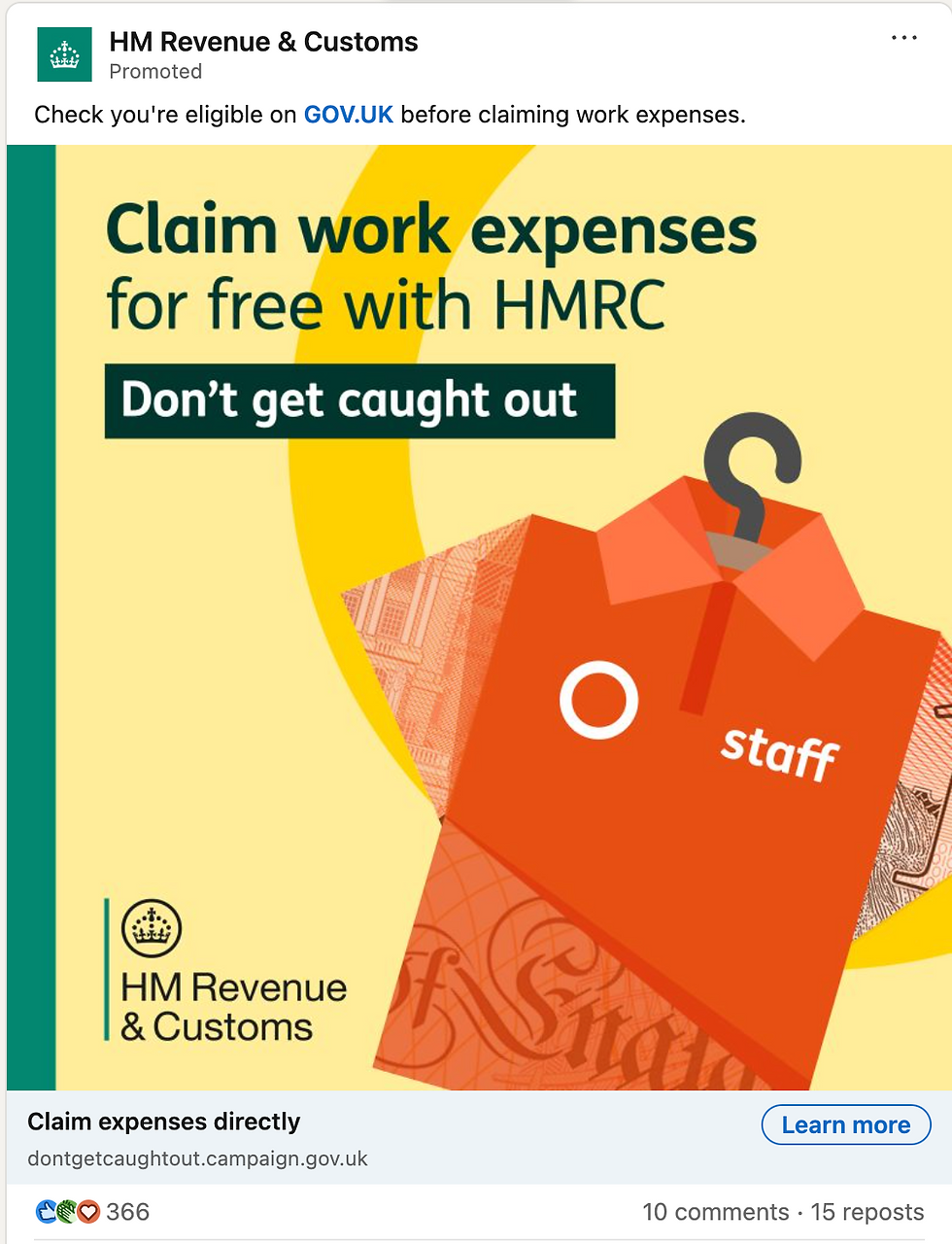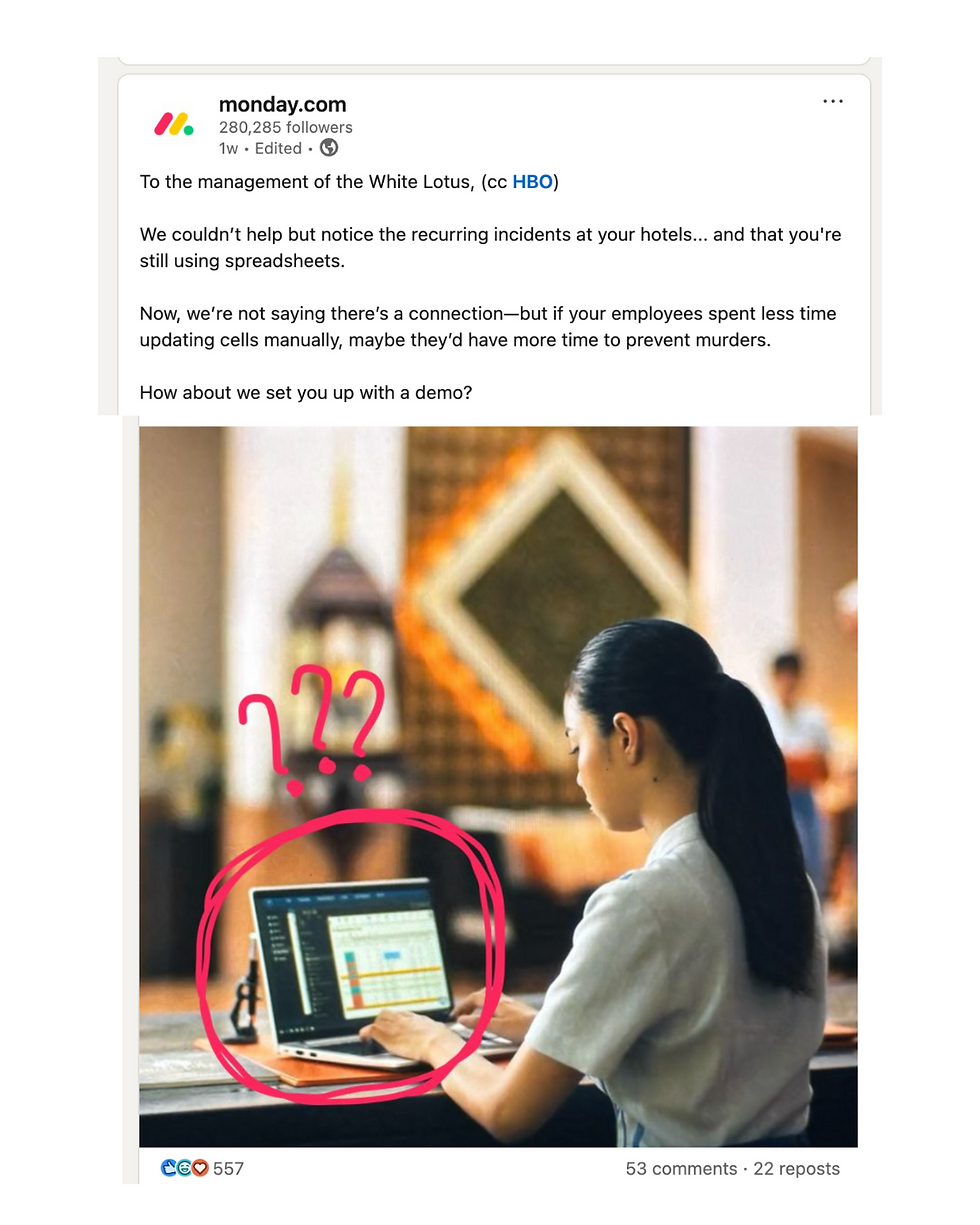Still Struggling to Convert Buyers? A simple Copywriting lesson from McDonald’s Nudge Strategy
- Vivien

- Mar 11
- 4 min read
Updated: Aug 21

It goes without saying - McDonald's ads are brilliant.
But there's a copywriting strategy behind it that's even better than you thought - and McDonalds uses it to get their customers to take action.
Have you noticed how when you're about 10 minutes (500m) away from a McDonald's, you'll start seeing more of their ads?
-Bus stops
-Train stations
-Motorway billboards
McDonald's uses a simple trick - Nudging
Nudging is small and subtle.
It doesn't need to use aggressive, “BUY NOW OR MISS OUT!” techniques
It influences your buyer’s decision by making their choice seem natural, intuitive, and effortless.
Rooted in behavioral science, nudging was first proposed by Richard Thaler and Cass Sunstein, stating that people can be “nudged” into making decisions that are in their best interest without restricting their freedom of choice.
A Nudge Strategy leads to higher conversion rates and speeds up the sales process because it sits at the customer's trigger points and targets people who are already aware of the problem and are actively looking for a solution.
Ok but let's be real - Anyone who works in B2B may look at this example and think "that's nice, but it won't work for me."
I know your ideal buyer isn't a few 100m away. It's more like a committee of decision makers behind their screens.
The problem is most B2Bs don't nudge - they go full on fog horn with the constant Pick Me - Pick Me messaging, which instantly turns off your buyers.
Nudge messaging can work for B2B, where your buyers tend to do a whole load of research before they consider you.
It just requires a different approach and a change in your mindset.
You see, people don't think about you as much as you think they do.
The trick isn't to get people to fall in love with your brand - You just need them to remember you when they are ready to buy.

Just like McDonald's sending directions to help their hungry customers find them, your content should nudge your prospects to see how your solution works for them as they get closer to the point of sale.
So here's what you can do:
Copywriting that feels like you're helping, not selling.
Your B2B buyers aren’t scrolling looking for products. They’re looking for solutions. This simple mindshift will help you create content from being company-led to audience-first.
Focus On Trigger Points
The best content doesn’t brag about your product. Instead, it addresses those smack in the face problems your audience loses sleep over.
What's their 3 am problem?
Try and articulate your customer’s challenges better than they can.

Now look at what their trigger points are.
I can guarantee no one thinks about Nike until they need to buy trainers.
No one thinks about Apple unless they need a new phone.

Copywriting that Educates Them:
Solve those problems in your blog posts, guides, and tutorials.
HMRC posts motivate and encourage people to claim their expenses by educating them.
I recently worked with a SaaS Management Platform Company who had a whole library filled with blogs, but each article read like a sales pitch - “Why Your Digital Platforms Matter.” "Why you need a Management Platform." Traffic was low. No one cared.
So we pivoted several articles from selling to helping, including short, educating videos, guides, and templates. "How to increase your sales team call backs using our free workflow template." and "7 steps to improve your morning meetings"
It was specific, relatable, and actionable, and increased traffic by 27%.
Copywriting that Leads With Value
Back up your promises with the tangible results that validate your insights and solutions.
Share your experience and processes that overcome the same problems as your clients.
Visuals can help create the image of success better than words.
Dulux's content focuses on how to select the right colour palette for different business spaces with the ability to download their guide and see other transformations.

Social Proof:
Humans are risk-averse. We want to know what works and if it does, will it work for us.
Build your social proof. Use testimonials, reviews, and user-generated content to reassure your buyers and give them an idea of what they can expect working with you.
Working with the SaaS Management Platform Company, we updated articles into case studies.
One showed how a small startup saved $30,000 by automating, another highlighted how an ecom merchant worked from home called "Why I like Tuesdays".
We added a simple CTA asking “Want results like these? Download our free ROI calculator.”
Copywriting that makes the Next Step Easy:
Give them an instant win.
What's a quick problem you can help solve right now?
Most B2B companies confuse their leads by mismatching the next step.
Be clear what you want your reader to do next. Do you want them to engage with a comment, or download a guide? Remember to stick to just one CTA.
You don't have to gatekeep every piece of information.
I know you want to collect emails but adding friction too early in their journey can scare them away.
Show samples of your report to tease them, they can always swap their data for the full report.
Bonus: Stay on Trends:
One of the many challenges for your communication is to stay relevant
Monday .com made a witty post about the TV series White Lotus.

Writing about current trends helps you piggyback on a bigger audience and make an association with something they can relate to.
Pro Tip: Double check to make sure those trends resonate with your audience. Sometimes what you think is relatable isn't clear to your customer and can miss the mark.
Your B2B buyers ' journeys can take a while, which unfortunately means your carefully crafted message can easily get lost in their daily business feed.
Nudging is a subtle way to influence your customers and makes sure they think of you when it comes to their point of purchase.
Imagine the only thing standing between you and your next big opportunity is a follow-up email - that extra nudge. What would you write?
✅ Did you find this issue helpful? Subscribe to my Weekly Newsletter
I train B2B comms leaders and teams to use Human-Designed Communication to stop their messages disappearing into inboxes and Slack threads, and start creating content that grabs attention and drives decisions.




